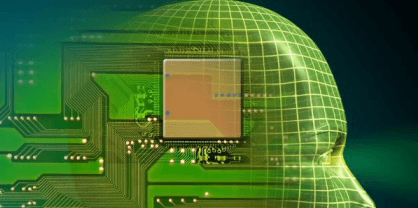The 5 Disciplines – Compute & The Human Operating System circa 2020
 Human Operating System – We’re making everything smarter – from our data centers to our watches. But this wonderful technology is and misused in myriads of unpredictable ways. On the one end of the spectrum, there are CIOs with access to the type of analytic power that could beat an army of chess champions and send a man to the moon. And they make multi-million dollar decisions – including which data center to buy – based on hunches and lunches — and an occasional spreadsheet.
On the other end are the 15% of Americans that don’t use the internet because they’re too poor, too afraid, or too stuck in their ways. I get freaked out if I’m offline for a day. Can you imagine never? In the misuse, column has everything from cyberbullying to phishing to privacy violations to spam – black technology that finds a weak link in our technical and human defenses and exploits it mercilessly. But we also have self-imposed and well-intentioned misuse – people who simply drown in, workaholics compulsively checking e-mail around the clock, gaming addicts who never grow up or leave mom’s basement.
Now we could say artificial intelligence is no match for natural stupidity, and that’s why technology doesn’t work for us the way we envision. I say that we just haven’t built the right technology.
Human Operating System – We’re making everything smarter – from our data centers to our watches. But this wonderful technology is and misused in myriads of unpredictable ways. On the one end of the spectrum, there are CIOs with access to the type of analytic power that could beat an army of chess champions and send a man to the moon. And they make multi-million dollar decisions – including which data center to buy – based on hunches and lunches — and an occasional spreadsheet.
On the other end are the 15% of Americans that don’t use the internet because they’re too poor, too afraid, or too stuck in their ways. I get freaked out if I’m offline for a day. Can you imagine never? In the misuse, column has everything from cyberbullying to phishing to privacy violations to spam – black technology that finds a weak link in our technical and human defenses and exploits it mercilessly. But we also have self-imposed and well-intentioned misuse – people who simply drown in, workaholics compulsively checking e-mail around the clock, gaming addicts who never grow up or leave mom’s basement.
Now we could say artificial intelligence is no match for natural stupidity, and that’s why technology doesn’t work for us the way we envision. I say that we just haven’t built the right technology.
Human operating system. What does that mean?
- It means a system that’s open to everyone – with text to speech and gestural inputs for those that struggle with a keyboard as the interface; with low cost, ubiquitous access those that don’t have the money; with safe places for those who are afraid.
- It’s a system that interfaces you in the way that you need – an analytic back end with a spreadsheet front end if that’s what you want; an e-mail that feels like a phone call or a transcription into e-mail for visual people.
- It’s a system that brings together communities for sharing and innovation based on things like Team Dimension profiles – matching them by their strengths and weaknesses and smoothing the rough edges that happen when a visionary first runs into a refiner and has his dream deconstructed into the 50 ways it will fail.
- It’s a system where data is objective and inescapable, so you may be entitled to your opinions, but not your own facts – whether those facts are who shot first between Han or Greedo (or Russia and the Ukraine), what the uptime of your network and facility is forecast to be, or the comparative ecological footprint of a massive data center or an army of actuaries it replace
- It’s a system where more things become matters of shared knowledge and consensus, with less need for government or management and more collaboration between peers – a system where Valve and Gore and Semco are not the exceptions but the rule.
We plug in real-time translation and can collaborate worldwide – and then maybe real-time interpretation so that introverts and or visionaries and refiners can communicate better. And step by step we’ll get a technology that fits us like a glove instead of a cast and combines our individual powers into Voltron instead of using them to score points against each other. That’s the big thing. That’s the human operating system.


